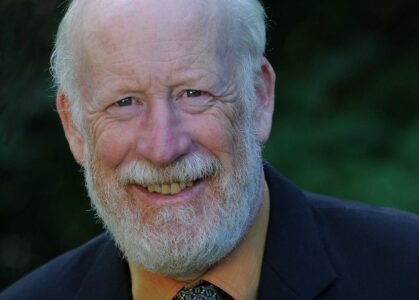Power to the people : Area B lets residents decide recreation outcome
Rossland continues to be the odd man out when it comes to using Trail’s recreation facilities. Recent efforts by Area B to come up with a better long term solution around recreation in Trail has recently put the issue in the people’s hands. After going through a three month mediation process, the mediators recommendations will now go to a referendum in that community. This latest move raises the question of whether or not Rossland should enter into mediation with Trail and ultimately leave the decision to take part in a recreation service agreement up to the people?
In the wake of the regional recreation breakdown Area B was in a uniquely poor situation. As area director Linda Worley put it, “when everyone else got out we had no place left to go. Beaver Valley, Montrose, Fruitvale and Area A had the Beaver Valley Rec Association to rely on, so it was an easier transition for them. Rossland, being a city, had their own resources to draw on. Warfield was in the same position. Everyone abandoned ship and we were left behind.” When regional recreation was still in action, the province also kicked in some support dollars to maintain the facilities. Following the breakup, that provincial funding was lost. To add to that, Fruitvale (lacking in recreational facilities other than three halls in Casino, Genelle and Oasis and its network of trails and parks) had no other recreation body to go to following the breakup. To have maintained the previous recreation service level would have meant “a horrendous amount of taxation to go onto the tax payers without some kind of mediation and meeting halfway,” explained Worley. Prior to her death, previous Area B director Marie Christensen did make a band aid-style deal with Trail to regain access for her region’s residents in the short term. That deal was for $105,000, to run through the end of 2010 with the agreement that a mediator would be put in place and a referendum would be held on the mediator’s recommendations. The mediator retained was Allan Neilson-Welch, the same mediator used through the nearly two year process of the old regional recreation deal’s dissolution. His final report was delivered last week and it providing a detailed look into the situation. One of the fundamental issues in the dispute between Trail and Area B (which is the same fundamental disagreement that exists between Rossland and Trail) is how the cost apportionment values are arrived at. Trail has maintained through this process that, in keeping with other regional deals, the cost sharing should be calculated through percentage of converted assessment. Area B has maintained that the fair way to come to an agreement is cost sharing based on a per capita basis. The motivations for each side are clear. Trail, which receives a significant portion of their revenue from an industrial base, has a much lower cost per resident in a formula based purely on population than communities such as Area B and Rossland, whose revenue comes largely from residential taxpayers. Area B has felt strongly that recreation services are services to people and as such, cost sharing should be based on population rather than assessment. In keeping with that belief, Area B suggested a rate of $70,000 a year to be a part of Trail’s recreation service agreement. Comparably, the Beaver Valley’s contribution of $200,000 translates in a per capita contribution of $40.37 per resident, Warfield’s contribution of $71,350 translates into $41.26 per capita and Area B’s suggested $70,000 contribution would equal $49.37 per capita. The City of Trail rejected the $70,000 offer and has asked for a contribution of $178,563. From Trail’s perspective, this move would maintain consistency among the various agreements. The arrangement proposed for Area B, however, would be significantly more expensive for that jurisdiction than for Beaver Valley or Warfield. Trail notes that, unlike Area B, Beaver Valley and Warfield already have recreation facilities used by the region. Therefore they received a discount on their rate. In an attempt to come to a fair solution, the mediator found merits and points of issue with both arguments. It was noted that Area B’s proposal of $70,000 was based on a per capita contribution rather than based on their population in terms of percentage of Greater Trail population. That math works out as follows: Area B’s population 1,418 divided by 18,615 (Greater Trail population) multiplied by $2,690,200 (costs identified for sharing) multiplied by a discount rate of 73.02% (factoring in Area B’s existing facilities and lack of any voting control on the spending of rec funds) would equal a contribution of $149,637. The mediator’s final recommendation was for Area B to contribute $135,330 per year. What that would mean to Area B residents is essentially a doubling in costs paid through property taxation for recreation services. Under the current 18 month interim deal, Area B residents are paying $20.61 per $100,000 in assessed value. If the new recommendation is adopted that rate would rise to $39.85 per $100,000 in assessed value. This week, information packages are being mailed out to all Area B residents prior to the referendum on the issue, which will be held August 21st. Voting will take place between 8:00 AM and 8:00 PM at the Regional District Office in Trail, the Casino hall, Oasis Hall, Genelle Hall as well as Rossland City Hall. Absentee voting will be available in the same locations on the two Wednesdays prior; August 11th and 18th. The fate of Area B’s inclusion in the Trail Recreation service agreement now lies in the hands of residents. “All I wanted for Area B was a chance for residents to see something in black and white for them to think about and decide on,” added Worley. “I could have made the decision myself but I don’t believe this is my decision to make. I wouldn’t do that. In my mind it’s vital that I work for the people and am doing what they are asking me to do, so we’re putting it to the people. I’m a little wary right now because it is the summertime. It’s two weeks before the long weekend, the last hurrah of summer, and I’m hoping people will realize that it’s an important issue and come out and have their say.” Should the agreement go through, Rossland will be the only former participant in regional recreation still without a deal with Trail. When asked if he would welcome a similar process between Trail and Rossland, Trail mayor Dieter Boggs noted, “They haven’t indicated to us that they want to discuss the issue at all. If Rossland is interested in the mediator to come forward with a recommendation for both sides to consider, we would be very pleased with that.” For now, however, there is no communication between Trail and Rossland on the issue. Should Rossland enter into mediation with Trail over the issue? If so, should the decision be put to the people of Rossland through a referendum, or left in the hands of politicians?


























